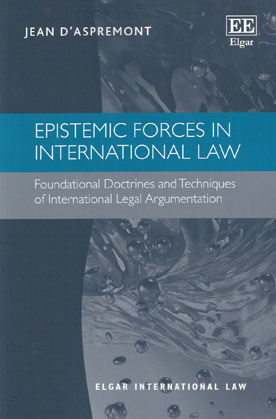
Epistemic Forces in International Law presents a comprehensive examination of the methodological choices made by international lawyers and provides a discerning insight into the ways in which lawyers shape their arguments to secure validation within the international legal community.
International law is defined in this book as an argumentative practice, articulated around a set of foundational doctrines and deployed through rhetorical techniques. Taking an original approach, Jean d'Aspremont focuses on five key foundational doctrines of international legal theory and five key techniques deployed in international legal argumentation.
He argues that mastering these foundational principles and argumentative procedures shapes the discourse of international lawyers as much as these discourses shape these foundational doctrines and techniques of legal argumentation.
This book is a pertinent contribution to the methodology and theory of international law, illustrating the rationale of the choices made by lawyers in the doctrines of statehood, sources, law-making, international organisations and effectivity.
This accessible reflection on the conceptual, theoretical and methodological perspectives of international law will be a salient point of reference for legal academics, researchers and practitioners alike.